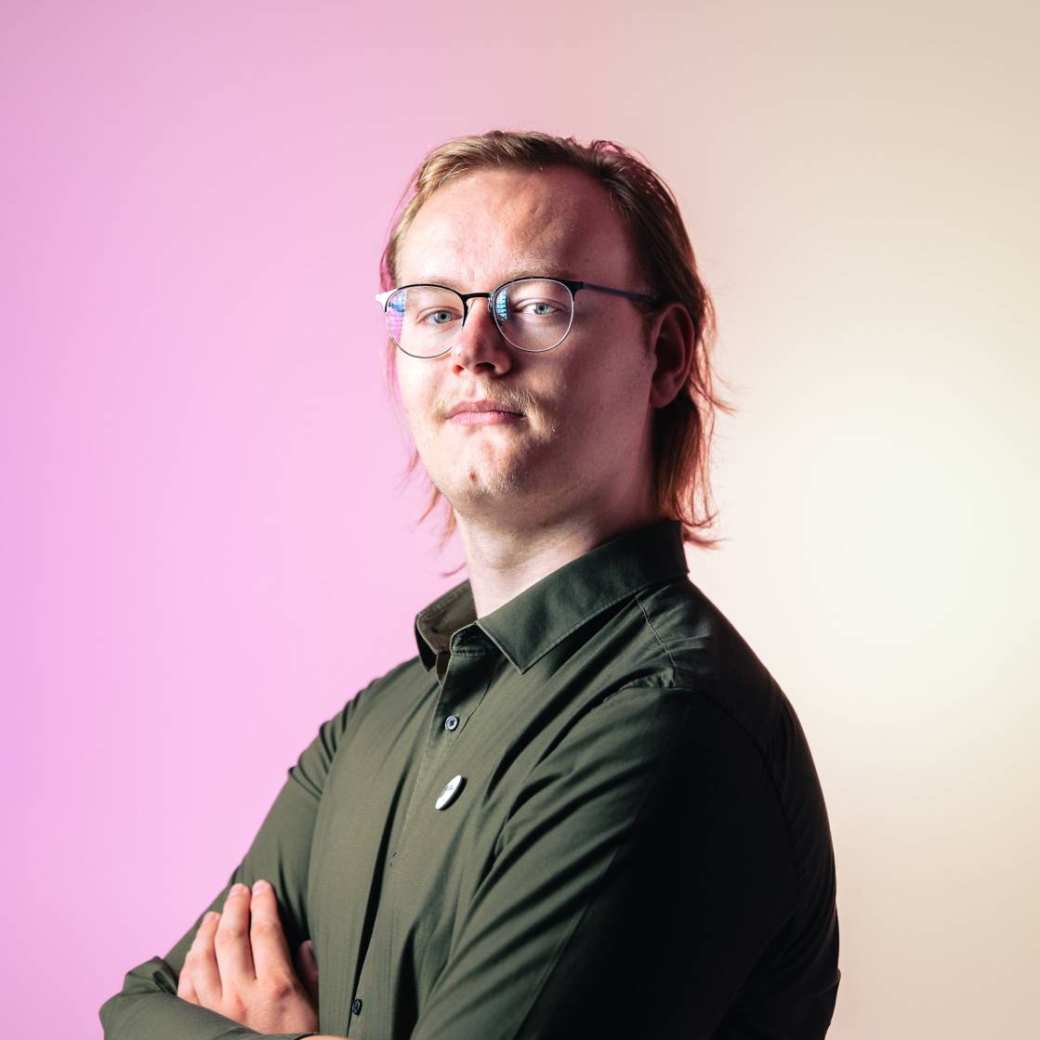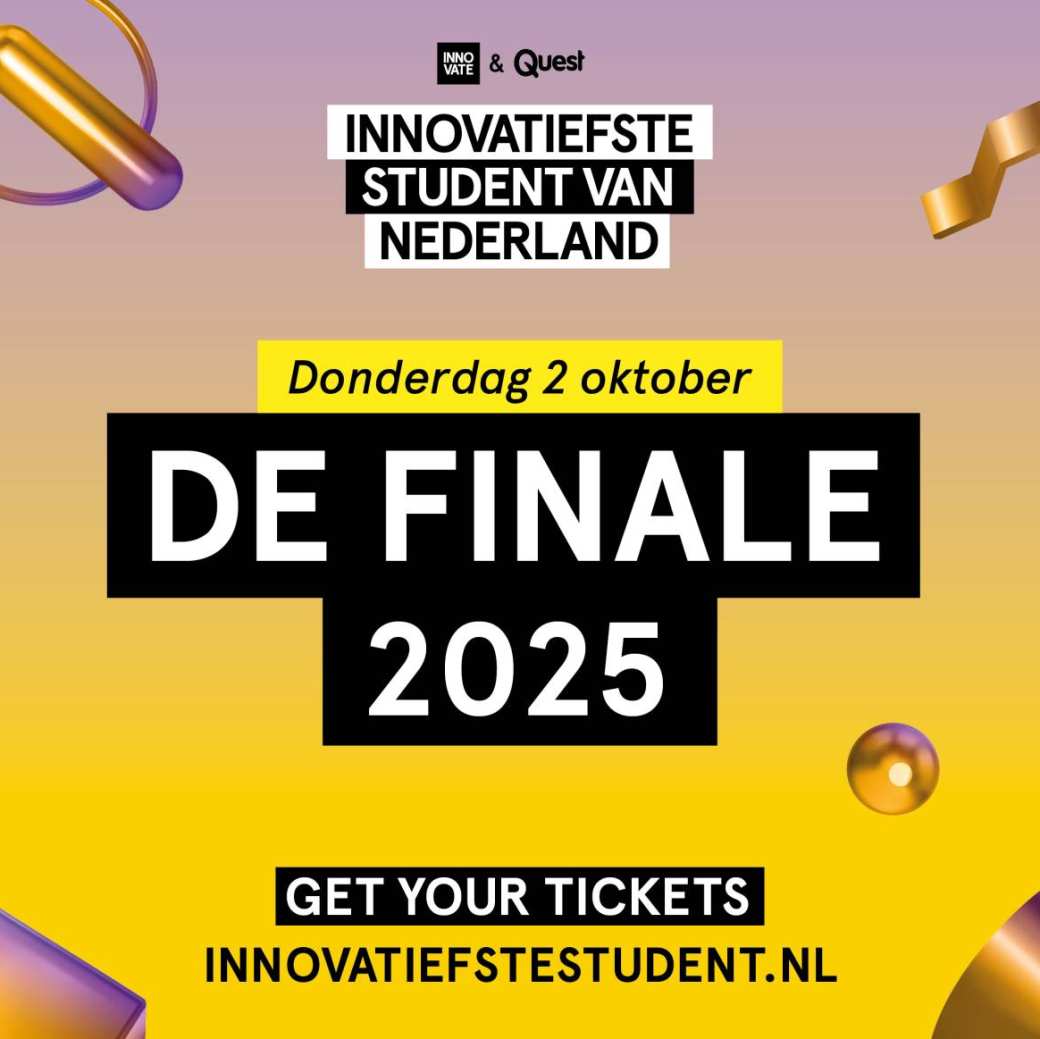The green gold that solves 4 environmental problems
A dreamer who loves working with his hands – that's how 22-year-old Bas Emaus describes himself. At HAN, he is currently completing his bachelor degree in Life Sciences. His biggest dream: contribute to solving major environmental challenges.

With his startup JiTiBa, he has designed an installation that purifies water using algae. The first prototype has been sold, and he hopes to scale up soon. Being chosen as the Most Innovative Student of the Netherlands 2025 is sure to boost his ambitions even further.
Major environmental problems
The greenhouse effect, the nitrogen crisis, the manure surplus, PFAS pollution: these are major environmental problems we currently face. In each of these, algae can play a part in the solution, Bas believes. The idea has been growing in his mind for 3 years. "I used to live in Elst and often drove across the Waal River in summer. The water was green with algae, and I started thinking about what you could do with that under controlled conditions."
Strengths and weaknesses
For Bas, just thinking about something is never the endpoint. As a Life Sciences student, he gains the scientific foundation he needs. "But you don't learn how to actually build things. I've come up with a lot myself. Even as a child, I was a tinkerer. And I went looking for people who had the knowledge I lacked. I know my strengths and weaknesses. Together with 2 fellow students, a chemistry and a plant sciences student, I built our first prototype using some old aquarium tanks. It worked really well. Our initial plan was to make biodiesel, but that turned out to be financially unfeasible."

Revenue model
A year ago, Bas went to Austria for an exchange minor. "I had lots of free time there. So I built new systems on my balcony using different techniques. The goal at that point was to purify water. We managed to get sponsorship from several universities, and eventually sold that prototype to one of them."
Although the system worked technically, finding a revenue model proved difficult. Bas: "You can remove up to 100% of nitrogen from water using algae. We hoped that the amount removed from ditches and streams around a farm could be used to offset nitrogen emissions from that farm. After extensive research, however, that turned out to be legally impossible."
Alternative to fertilizer
Bas’s earlier system also proved unsuitable for the large volumes that water treatment plants process every day. Bas: "But, at those plants, there’s a huge waste stream: sewage sludge. Its disposal and incineration cost around a quarter of a billion euros a year in the Netherlands. My algae can grow perfectly well on that sludge. They absorb the junk that's in it, and the clean product that remains can then be sold as an alternative to fertilizer or as a base material for construction products. In this way, waste becomes something you can make money from."
Bas speaks about his ideas and projects with great enthusiasm. That passion, he says, has been crucial to his success. "Before you start anything you have to ask yourself: what problem is my idea actually solving? There must be a real need. Don’t just do something because it’s fun. First, sit down and talk to people who have experience in your target area: I'm a student and I have this idea. That's how I ended up talking to people all over the place. I spoke to as many as 400 to 500 people. These ranged from the EU's Head of Innovation to professionals in various companies and government agencies. People don’t always take you seriously, but that’s less of a problem than not trying at all. The key is to get specific contacts: someone might say, 'for that topic, you should talk to Hans'. And then keep track of everyone you approach. After a few months, you’ll know exactly who to contact when you encounter a specific problem."
This is how Bas connected with Modderkolk, a major engineering company that is also active in water treatment. "I just called them, and after 2 phone calls, I was sitting at the table with the director. We formed a partnership, and they're now helping me find investors."
Pittfall
Since then, Bas has been nominated for several awards, has been invited as a guest speaker and lecturer at several international universities, and has built a successful startup. Yet after taking a gap year to focus fully on JiTiBa, he now plans to continue with a master degree in Biotechnology. Bas: "I really need those skills. Science offers so much depth. If you really want to understand what you're doing, that master degree is essential, even if it takes a lot of time. I spend about 20 to 30 hours a week on the startup, and with my studies, that makes for 60 to 80-hour weeks. My enthusiasm is my strength, but also a pitfall. Fortunately, the summer break forced me to slow down for a bit."

2025 Most Innovative Student of the Netherlands
On 2 October Bas won the Most Innovative Student of the Netherlands 2025 award with his startup JiTiBa. After an intensive boot camp and a live pitch battle, Bas convinced the jury of the potential of his project. The prize earned him a growth tour in Silicon Valley.

